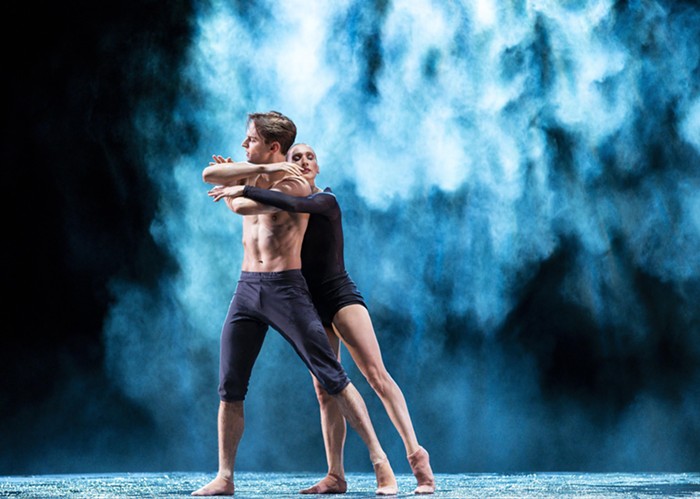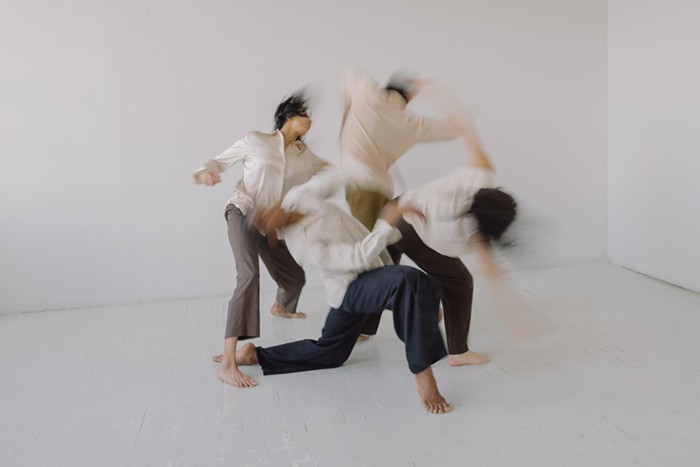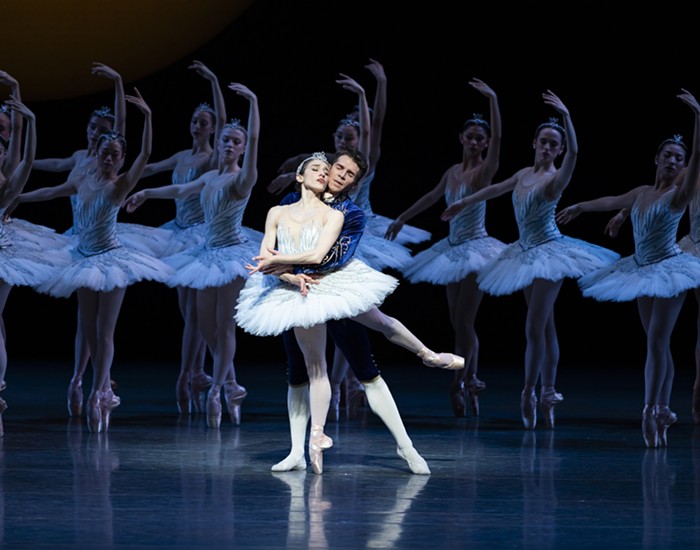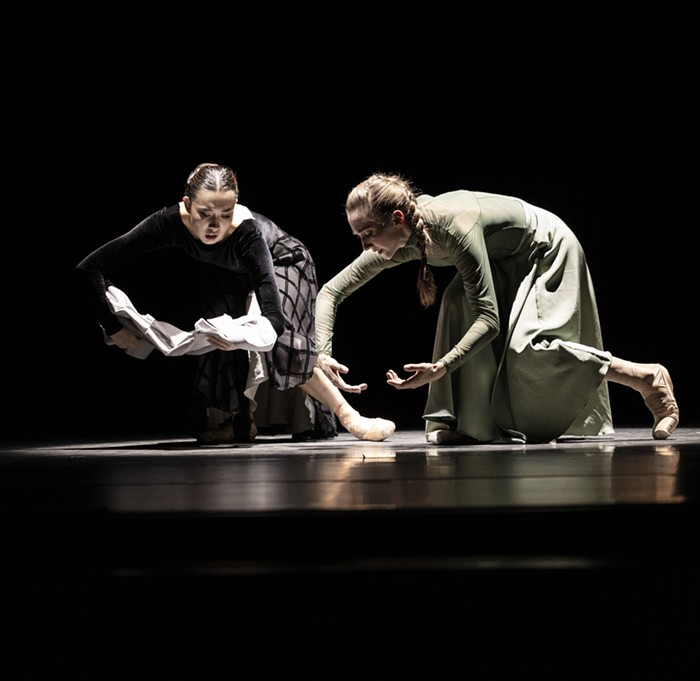
If you want something funny and beautiful and tragic to happen in your life later this week, then pick up a ticket to Jean-Christophe Maillot’s Roméo et Juliette at the Pacific Northwest Ballet.
As I wrote last month in a weepy blog post, this February production of R&J marks the last time PNB principal Noelani Pantastico will resurrect her signature role as Juliette and leap into the arms of her longtime Roméo, James Yoichi Moore. After this run, she'll retire from the company before heading out east to raise the next crop of ballet dancers at the Central Pennsylvania Youth Ballet.
But she's not going anywhere for now, and we're lucky for that.
On opening night, she and Moore slid into their roles as the star-crossed Veronese lovebirds with an easy familiarity. Though they've played their respective characters a million times since PNB Artistic Director Peter Boal brought Maillot’s version to town in 2008, the two fell in love, pined, rolled around the stage, killed cousins, and killed themselves as if for the first time. Their stunning duet at the end of Act I still stunned. Moore's charming, bubbly Roméo still charmed. That impressive moment when Pantastico jumps into Moore's arms and he spins her around 30-50 times still impressed. And Pantastico's primal, silent scream toward the end of the show still pierced the heart.
I sang praises for soloist Miles Pertl's portrayal of Friar Laurence when PNB ran the production back in 2016, but they're worth singing again. He continues to excel in his role as cupid and grim reaper by projecting the appropriate amount of both doom and determination, as if maybe this time he really won't fuck up the second greatest romance in literature (after Queequeg and Ishmael, of course).
A number of dancers making debuts in their roles turned in great performances as well, perhaps most of all soloist James Kirby Rogers. He played Tybalt like a black panther; powerful and exacting, executing big-ass jumps all over the place while maintaining clean lines. The moment when Roméo suffocates him with a bloody rag nearly stole the whole show.
Soloist Ezra Thompson matched Rogers's skill and prowess in his portrayal of Mercutio, as did principal dancer Elle Macy, who played Lady Capulet as a perfect counterpart to Rogers's Tybalt. She moved with a sleek, serpentine fluidity. Her every flourish dripped with poison. When she shared the stage with Pantastico's Juliette, she looked like a spider fighting a lunar moth. She also stood out as a foil for the Nurse, played by principal dancer Leta Biasucci, who displayed fantastic comic timing and incredible precision in her funny fits throughout the show.
The conductor could have given Juliette a couple more seconds at the end to die, though. You won't catch me advocating for melodrama, and I can see how an abrupt conclusion could embody the tragedy of a life cut short in a moving way, but Pantastico only had two or three seconds to off herself. Tybalt's death — which was particularly gripping thanks to great acting from Rogers and Moore — took like 10 seconds. Juliette should get at least half that, if for no other reason than to offer a more satisfying payoff for the show's obsessive prefiguring.
After all, nearly every movement and nearly every scene points to the inevitable deaths of the titular characters. Aside from the Friar's constant reminders, Roméo and Juliette's choreography unspools as an endless play on the absence/presence paradox, and a comical Punch and Judy show lays out the whole plot about halfway through. I count Maillot’s obsession with foreshadowing as one of the show's strengths, since it both smartly acknowledges audience familiarity with the story and projects a sense of fatalism central to Shakespeare's text. That fatalism resonated pretty loudly for me this go-around, especially in the context of Pantastico's retirement, especially at this time of year, and maybe especially at this particular moment in the course of America's experiment with democracy. With all that humming in the background, I think we could all use a few more seconds to eat our last meal.


















